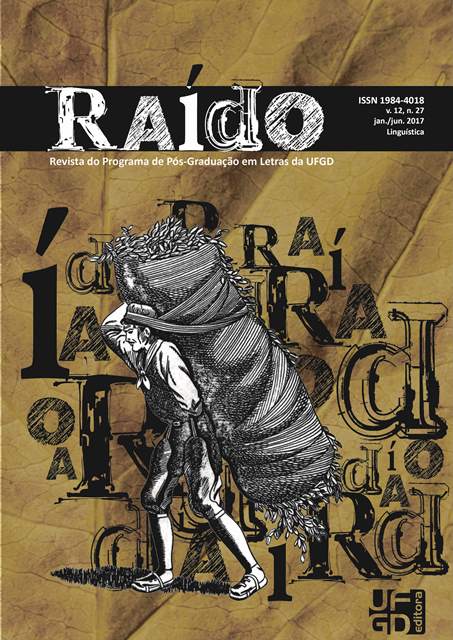Knowledge production, learning, and (meta)cognition in international relations theory: a case study in Brazil
DOI:
https://doi.org/10.30612/raido.v11i27.5683Keywords:
Language/Linguistics. (Meta)cognition. International Relations Theory. Developing Countries.Abstract
This paper investigates the learning and the production of theoretical thinking in International Relations (IR) undergraduate courses in Brazil. We argue that students’ inability to read and write academic texts is related to metacognitive issues and theoretical choices taken in academic settings. This hypothesis is grounded both in the context of Brazilian educational system, which emphasizes conceptualization rather than analytical thinking, and the predominance of traditional positivist approaches, which are unrelated to the context of developing countries like Brazil. The theoretical basis of this article comprehends principles from critical pedagogy and cognitive sciences, focusing on four metatextual language functions: report, summarize, analyze and theorize (AUTHOR, 2015). In order to describe students’ production, a diagnostic questionnaire about a coursebook chapter was proposed to 35 students attending the course “IR Theory I”. The answers for four of the questions show that lack of autonomous thinking in the discipline is reflected in students' understanding expressed through perfunctory writing. Consequently, the possibility of students becoming active subjects in both understanding and transformation of international politics is denied. In terms of reading and writing, metacognitive reflections must be included not only in language teaching, but also in theoretical courses, especially when dealing with academic texts.Downloads
Download data is not yet available.
Downloads
Published
2017-08-18
How to Cite
Neves, F. E., & Elias, I. V. (2017). Knowledge production, learning, and (meta)cognition in international relations theory: a case study in Brazil. Raído, 11(27), 419–437. https://doi.org/10.30612/raido.v11i27.5683
Issue
Section
PART IV - ACADEMIC WRITING WITHIN MULTIPLE CONTEXTS OF ACADEMIC FORMATION
License
Os autores devem aceitar as normas de publicação ao submeterem a revista, bem como, concordam com os seguintes termos:
(a) O Conselho Editorial se reserva ao direito de efetuar, nos originais, alterações da Língua portuguesa para se manter o padrão culto da língua, respeitando, porém, o estilo dos autores.
(b) Autores mantém os direitos autorais e concedem à revista o direito de primeira publicação, com o trabalho simultaneamente licenciado sob a Atribuição-NãoComercial-CompartilhaIgual 3.0 Brasil (CC BY-NC-SA 3.0 BR) que permite: Compartilhar — copiar e redistribuir o material em qualquer suporte ou formato e Adaptar — remixar, transformar, e criar a partir do material. A CC BY-NC-SA 3.0 BR considera os termos seguintes:
- Atribuição — Você deve dar o crédito apropriado, prover um link para a licença e indicar se mudanças foram feitas. Você deve fazê-lo em qualquer circunstância razoável, mas de nenhuma maneira que sugira que o licenciante apoia você ou o seu uso.
- NãoComercial — Você não pode usar o material para fins comerciais.
- CompartilhaIgual — Se você remixar, transformar, ou criar a partir do material, tem de distribuir as suas contribuições sob a mesma licença que o original.
- Sem restrições adicionais — Você não pode aplicar termos jurídicos ou medidas de caráter tecnológico que restrinjam legalmente outros de fazerem algo que a licença permita.
(c) Após a publicação, os autores têm permissão e são estimulados a publicar e distribuir seu trabalho online – em repositórios institucionais, página pessoal, rede social ou demais sites de divulgação científica, desde que a publicação não tenha fins comerciais.



